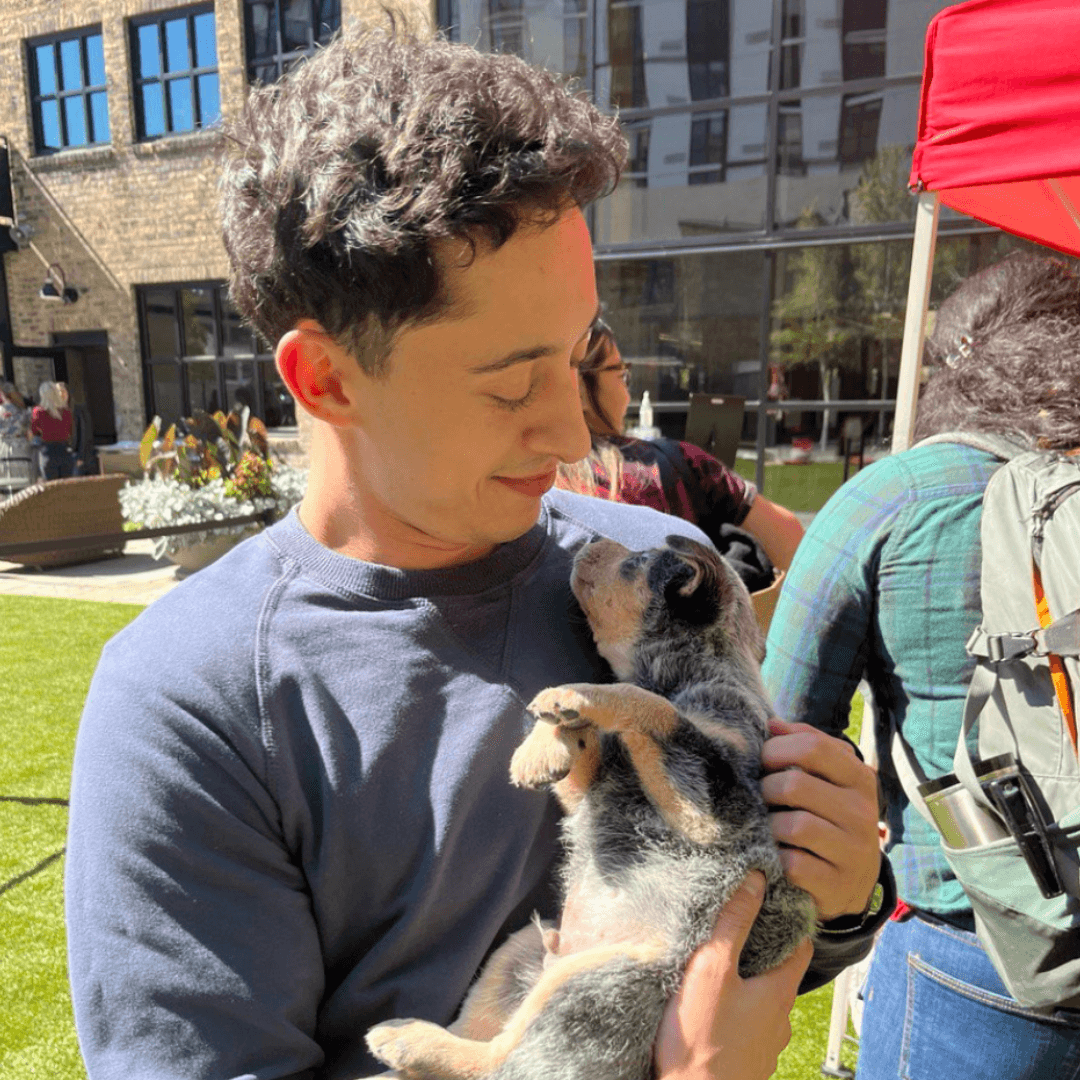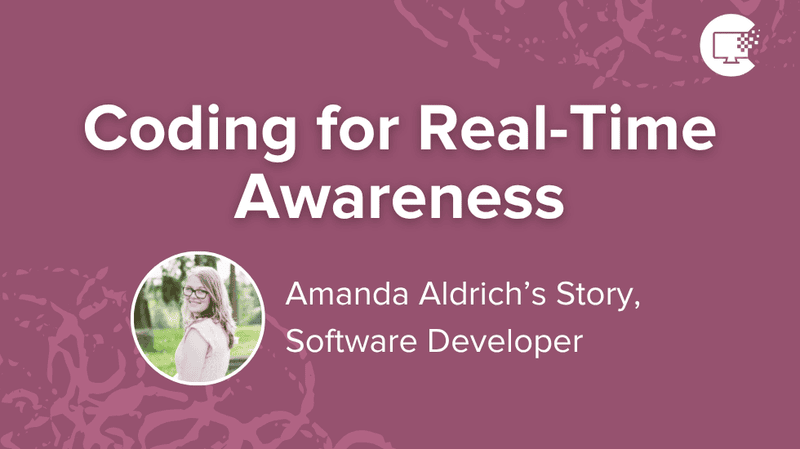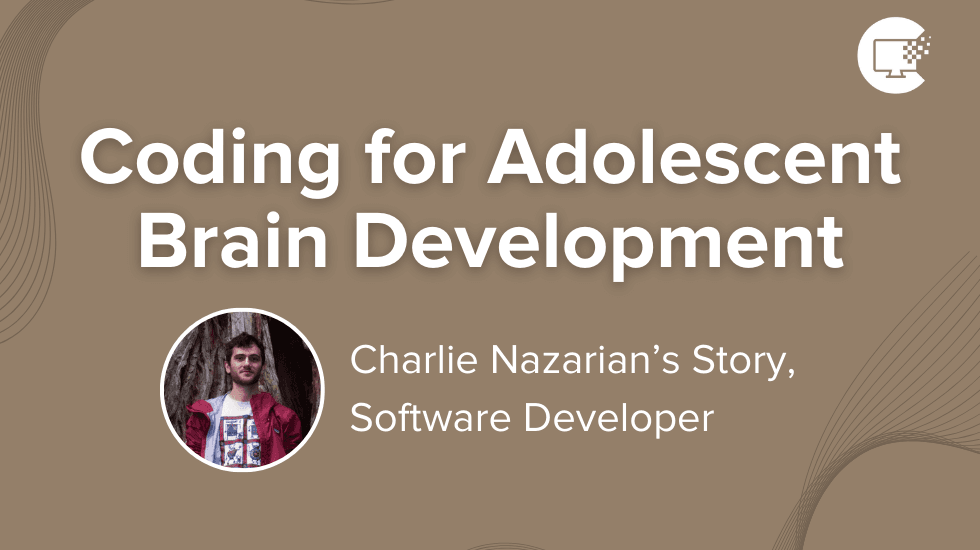Coding for E-Commerce at Target
By Adrian Pietrzykowski

Hi! I’m Adrian Pietrzykowski and I’m a back-end programmer for Target. My story starts with my parents immigrating from Morocco and Poland to the United States. I was born in Worcester, Massachusetts, and found my passion for music at an early age through playing piano. My family ended up moving to New Jersey, and through ten different moves within the state, I was able to develop a passion for computers while continuing my piano education.
After graduating high school, I started college at the University of Maryland, College Park, and decided to study computer science with no programming background. I was nervous about how I would compare against my peers, but I persevered throughout my undergraduate studies and was able to eventually work as a Software Engineer Intern at Target, resulting in a job offer post-graduation.
My job primarily consists of programming back-end systems for Target. If you’re unsure of what back-end systems are, think of clicking a button on a website.
“While front-end engineers design everything related to how the button looks, back-end engineers are primarily responsible for what happens when the button is clicked, or the ‘behind the scenes’ work.”
I’ve worked on two different teams in my Target career, Reverse Logistics and Target Plus. Reverse Logistics covers everything to do with online orders. I like to use this analogy: Think about everything that an online order might require to make it to your doorstep. First, it needs to be scanned at a warehouse, then loaded onto a truck to travel hundreds of miles. From there, it will be given to your local postal service, loaded onto a second truck, and finally delivered to your door! Reverse Logistics is the exact opposite of that path. If you’re unhappy with the order, the team is responsible for everything going backwards, and how the order makes it back to the warehouse.
My current team is Target Plus. Target Plus is similar to Amazon Marketplace, and allows small businesses to sell their items through Target on the online website.
The programming languages I primarily work with are Java and Kotlin, and the tools consist of Spring, MongoDB, and Micronaut. Outside of coding languages and tools, I use Jira and Notion to keep track of my workflow and stay organized. I also use geeksforgeeks.org as my primary source of educational knowledge and continued learning in the programming field.
My favorite thing about my job is the creative aspects. As I mentioned before, I grew up playing piano and found myself in lots of different artistic hobbies as I grew up, including graphic design, painting, drawing, and making music!
Being able to apply my creative background to my current role when I’m solving problems is by far my favorite part of being a software engineer!
I think many people believe engineering is a cut and dry field with a heavy emphasis on math, but I believe at the core of software engineering and programming lies problem-solving. Every problem has many different solutions, and thinking of all those solutions requires creativity, an aspect of engineering people may overlook.
In addition to problem-solving, I also believe coding is the foundation of being a software engineer. Coding is where it all starts, and most big companies, even retailers like Target, are tech companies at their core. In the modern age, companies need to have a solid tech foundation to be competitive. Because of this, I spend almost every single day coding at my job, and sometimes I like to code small side projects like simple iPhone apps!
For young coders, I have two pieces of advice.
First, don’t get caught up in comparison to your peers. While it is important to try to excel at your career, the priority is to be able to learn and truly understand what you are working on. Coding has become a fairly competitive field, and there’s always going to be peers that started learning coding before you. Remember that comparing yourself to those individuals is only going to be detrimental to you, and that everyone starts at a different point. Success isn’t going to occur overnight, and comparison is the thief of joy. I went into college with no coding experience and I still became a software engineer for Target!
My second piece of advice is to remember to have fun with coding. Coding is pretty cool and allows you to make some really awesome things! Remember to try to code a little bit outside of a school or work setting, and make things that you think are fun. One example could be making cool automated lights with a Raspberry Pi. The possibilities are endless! Software engineering is a problem-solving field that allows for the application of creativity, so don’t forget to apply that creativity.

When I’m not working, I love the outdoors and spend a lot of time either outside or at the gym. My main passion outside of work is making music. I love to get into music theory and spend time working on lots of different songs, spending time listening to other music for inspiration.
Coding has helped me improve at making music because it has allowed me to have less of a learning curve when learning the software necessary to make music. Additionally, a lot of working with synthesizers is related to math (remember Sine, Cosine, and Tangent from math class? That plays a big part in how synthesizers work!).
Lastly, I am a history buff at heart and I spend a lot of time reading history books and listening to history podcasts as well.


